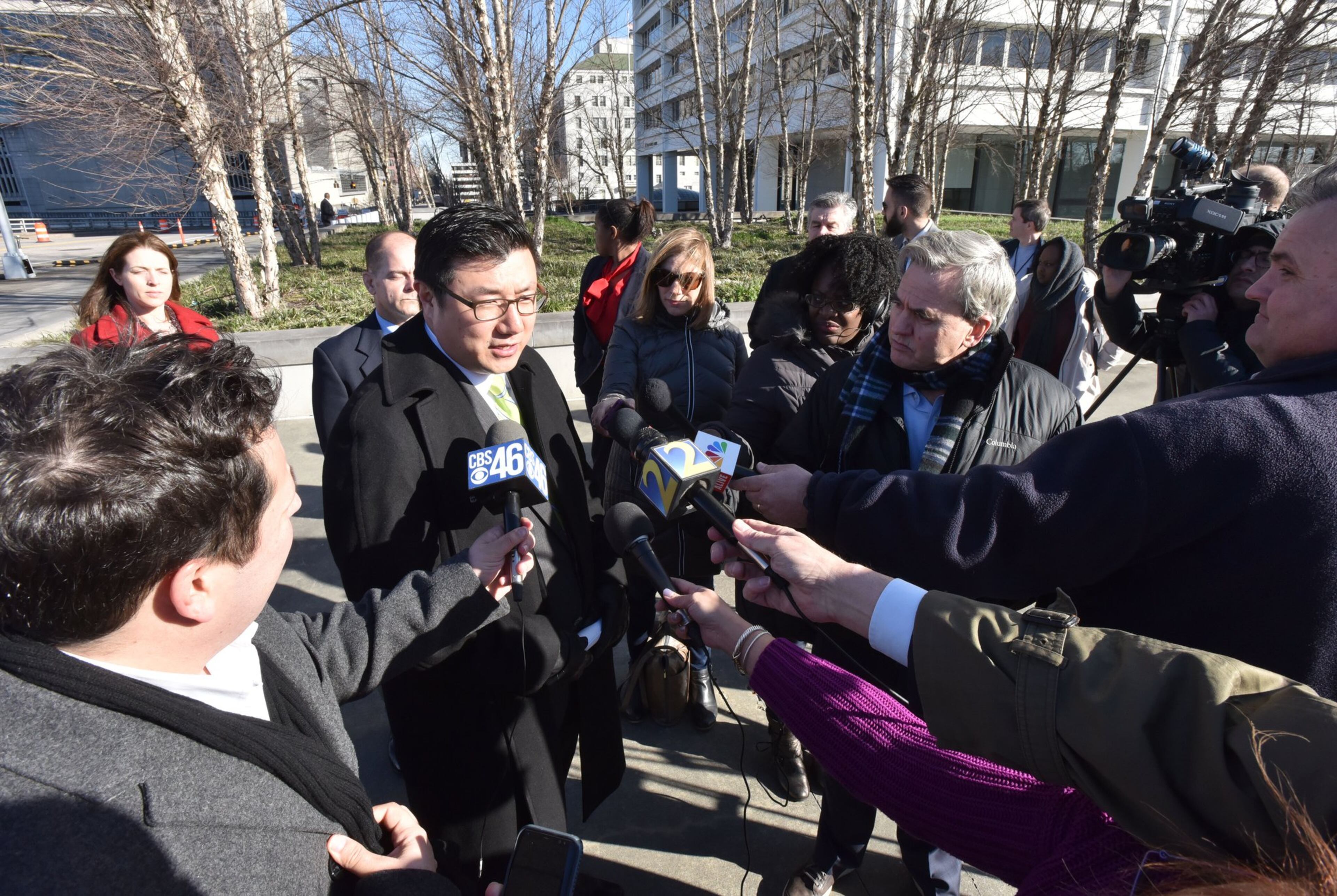OPINION: Atlanta corruption probe peters out. At least for now

Last week, Jeff Jafari, a longtime city contractor and prolific briber, was sentenced to five years in prison. He’s the guy who time and time again passed Benjamin-stuffed envelopes to a high-ranking city official while pulling in one fat contract after another.
Back in the day — until January 2017 — he was brazenly handing city procurement chief Adam Smith $1,000 payments to keep the gravy train rolling. In fact, the last payment, in a restaurant bathroom, came the day after the federal corruption investigation went public.
Turns out there’s nothing better to shrivel up public skullduggery than learning the FBI is sniffing around.
The feds said Jafari ultimately gave Smith $40,000 and another $30,000 to Atlanta water commissioner Jo Ann Macrina. (Both officials went to prison.)
In turn, Jafari’s firm, the PRAD Group, pulled in millions of dollars in contracts.
The (at least) eight-year-long corruption investigation has been intriguing and very high-profile, with high-ranking officials getting snared and a bit player tossing a brick with a scribbled warning through the window of a contractor who was cooperating with the feds.

Dead rats were also left on the doorstep to add a bit of Mafia Omertà flavor.
But on Wednesday, Jafari was a sad, broken man when facing U.S. District Judge Steve Jones. He’s had cancer. His wife has died. He lost his livelihood and reputation. And he owes a pile of money in restitution and back taxes.
Originally, attorney Steve Sadow said his client was a generous fellow who just liked to give people gifts. But later, Sadow, a hard-nosed litigator who loves a court battle, thought it best to cut a deal because his client might have faced 10 years-plus if convicted.
Ultimately, the taxes will sink you.
That means all that is left in this long-running saga is a case against Machine Gun Beard, AKA former Chief Financial Officer Jim Beard.
So far, nine Atlanta officials or contractors have been sentenced to prison, and the feds are seeking to end their operation with double-digit convictions.
Beard is different. All but one of those who have preceded him, with their heads bowed while asking the judge for leniency, were tied up in the pay-to-play game at City Hall.
But Beard was allegedly caught up in a petty, yet high-dollar, case of chiseling.

Most interesting is that Beard allegedly used $2,641 in taxpayer money to buy two machine guns for personal use. Prosecutors say he used the police department as a front to get the weapons, which are off limits to regular folks, including those with MBAs and $250,000-a-year city jobs.
Prosecutors allege there’s also tax fraud, some double-dipping and that Beard enjoyed fancy hotels on the city’s dime — including one in la France.
Au contraire, says Beard’s attorney, Scott Grubman, who denies the charges and says he’s ready for trial, which may come early next year.
He says his client is an innocent man swept up in an investigation aimed at former Mayor Kasim Reed, who was never charged with anything.
“It’s clear they were going after one person, they didn’t get that person and then ruined the lives of a lot of people around him,” said Grubman. Well, nine of those with “ruined” lives were caught doing something.
“If you add up the allegations here, it’s just a few thousand dollars, way less than the feds are ever interested in,” said Grubman. Later, he added, “This is maybe the first possession of a machine gun case where there’s no evidence the defendant ever possessed the machine gun or used the machine gun.”
Maybe no pictures of Beard going all Rambo with weaponry, but there’s emails of him contacting the gunmaker and evidence of him storing the gun in a police department gun locker.
Former U.S. Attorney “BJay” Pak waved off contentions that prosecutors were only obsessed with one Kasim Reed.

“We looked at any substantiated allegations,” he said. “There was a steady flow of allegations. We don’t target people, information comes to us.”
Pak hopes the legacy of this investigation “brings rules and a sense of compliance and competence” to city government.
Asked if he thinks the investigation has ended, he noted, “Just because you don’t hear it in the public doesn’t mean nothing is going on.”
Felicia Moore, who spent 24 years on the city council, the last four as president, was a loud critic of how ethics were handled in city government. She pointed out that the recent investigations brought about the Office of Inspector General, a city watchdog. The idea is to head off chicanery before it filters up to the feds.
However, in nearly 30 years at City Hall (she worked there before running for office), Moore witnessed three corruption scandals: One in the early 1990s, tied to the airport. One, a decade later where former Mayor Bill Campbell’s administration sent a bus full of officials, including himself, to prison. And the most recent roundup.
It’s almost generational, she said. “You recognize a problem. There’s a big scandal. You deal with it. And then it pops up again.”
Life in the big city.



